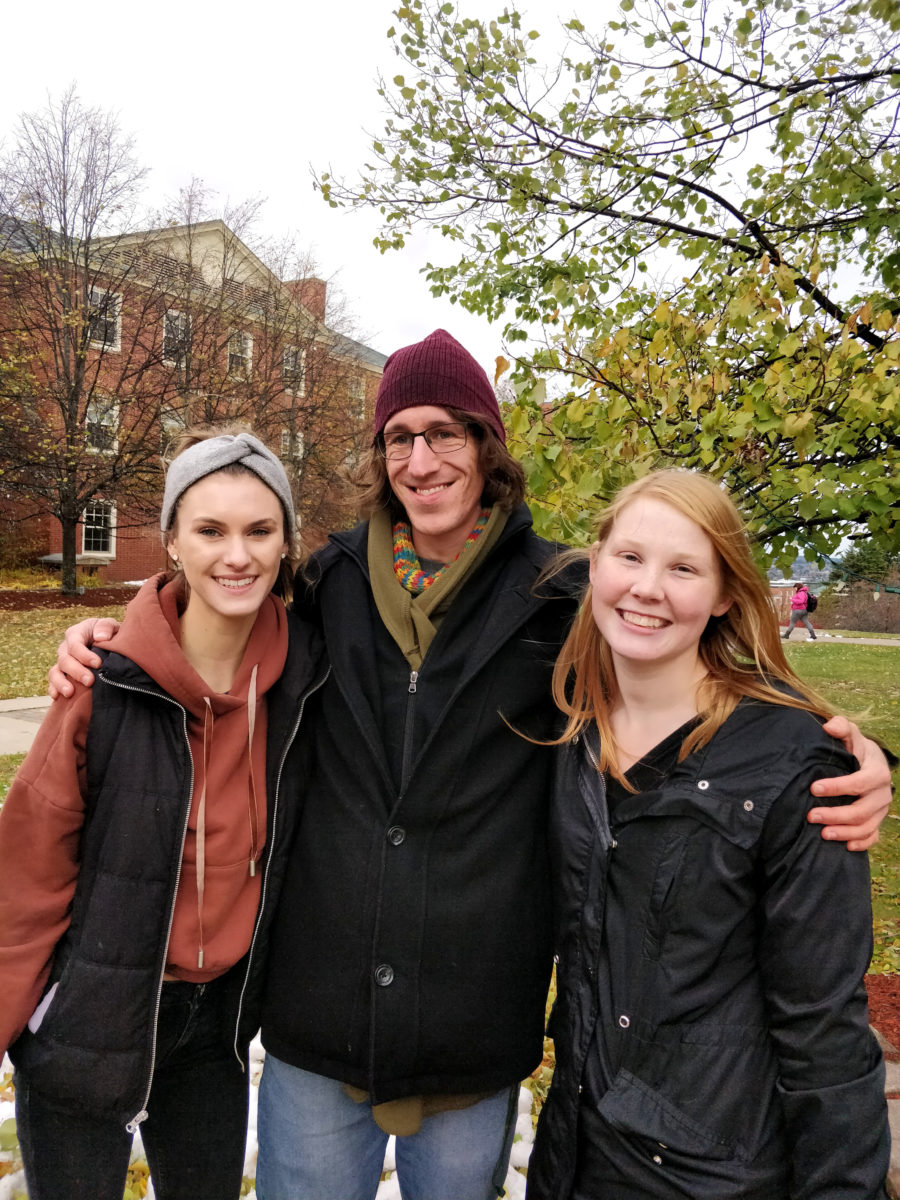Three students passionate about sustainability have brought back the Students for Sustainability club.
“I know it’s a really important thing for students to understand because of the environmental crisis we’re facing right now and it’ll inevitably be something all of us will have to deal with in one way or another,” said Hannah Moore, co-chair of the club.
Moore said she doesn’t have a “crazy backstory” about what made her passionate about environmental issues and climate change, but she credits her devotion to the Introduction to Environmental Studies course she took.
She approached the Student Representative Council about potentially adding a position on the council that focuses on environmental issues.
Moore was elected as an at-large representative, focusing her efforts on sustainability. However, the council suggested that she, along with fellow at-large representative Nikita Spencer and STU student Joshua Sallos bring the club back.
According to the club’s constitution, its goals are to establish a sustainability culture on campus, organize events, educate and engage students, be a voice for students’ concerns and work with any other groups and organizations on campus that share the same values regarding environmental issues.
“At STU there are so many passionate students who are eager to make a change for the good of St. Thomas, however students are missing a place where they can use their passions to make a difference,” said Spencer, a third-year student majoring in psychology and environment and society, in a Facebook message.
The club is looking for students interested in environmentalism and sustainability to join them. The club has approximately 15 members, as well the three executives. Anyone with the same vision and passion for building a sustainable future is welcome.
“As a 100 per cent student-driven, non-partisan movement, the hope is that STU Sustainability will be more accessible for people who don’t want to associate with a political party, but still care deeply about the environment and the STU student community,” said Sallos, a second-year communications and public policy and science and technology studies student, in a Facebook message.
The group will be working on multiple projects this year, the first one revolving around composting on campus. They are partnering with Enactus at the University of New Brunswick, to create a composting program on STU’s campus. They also plan to advocate to the provincial government to implement this throughout the city.
Moore and Spencer are planning to meet with STU’s meal hall to discuss waste management, as well as meet with administration to discuss ways to integrate sustainable techniques on campus.
Spencer hopes the club leads to bigger things.
“Having a STU sustainability club on campus is important as it is an easy way for faculty, student leaders and any decision makers to see how much interest and passion students have for sustainability. Having this club on campus, if we have a high participation rate, can be the gateway to larger scale initiatives.”
Moore believes this conversation should start early. She thinks implementing dialogue surrounding climate change and sustainability into the education system as early as elementary school is important for the planet’s future.
“That’s when our minds and our views on the world are still kind of malleable. So, I think if we start teaching children from a younger age about sustainability and why it’s important and why we need to respect the earth and … think about what we’re doing and the impact it’s having on the planet. Because we’ve gotten to the point now where we’re at a really bad state to be honest,” said Moore.
She stresses we only have a short amount of time before it’s too late. She referenced the United Nations International Panel on Climate Change report.
“It came out a few weeks ago … it was really depressing. They basically said we have 12 years to get it together or we’re screwed so it is scary and I think a lot of people don’t realize the severity of the issue and so that’s why we’re kind of trying to raise awareness around it,” Moore said.
“It’s just miscommunication, people don’t understand. It’s something that [needed] to happen yesterday.”
With files from Hannah John

